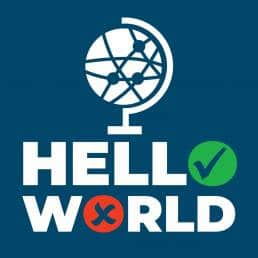How do you find signal in the noise? Some answers below.
Note to readers: Hello world is a program developers run to check if a newly installed programming language is working alright. Startups and tech companies are continuously launching new software to run the real world. This column will attempt to be the "Hello World" for the real world.
To avoid falling for success porn, which we talked about in the last edition of this column, follow and read experts. How do you find signal in the noise? Slow reading is one of the ways to do just that. But how do you read slow? Especially when there’s so much content out there?
Over 100,000 books are published every year in India. We also have over 100,000 registered newspapers generating millions of articles. Add to it Tweets, Instagram posts, short videos, and exam prep material floating around on the interwebs — all fighting for your attention.
It takes about 10-15 hours to read a 300-page book. Assuming you’re able to read one every two weeks, that’s 2 books a month or 24 books a year and in a lifespan of say 80 years, we’re talking about 65 years of reading. That’s about 1500 odd books. That’s not even scratching the surface.
I missed out reading for quite a few years because I didn’t start reading early. And I’ve tried to find the best way to read so I don’t feel like a complete idiot. I have a bit of a system that helps me and I’m sharing that here. But let me back up a bit so you know where I’m coming from.
I read a little bit of fiction in my early childhood. It started during the years in which we didn’t have a television at home but we had a shelf full of books. At first, I couldn’t bear look at books. But slowly I started reading. It helped that we had Phantom and Mandrake comics lying around at my cousin’s attic next doors.
I found my way to some books like The Name of the Rose and other reads ranging from Louis L’Amour, Sidney Sheldon, Robin Cook, Alistair MacLean, Agatha Christie, Bill Watterson, and Earl Stanley Gardner. I also read a bit of Chekov, Gogol, and Dostoevsky (not Crime and Punishment).
As I grew up, I stopped reading fiction and switched over to non-fiction, mostly because of work. Some books I read early included The Story of Philosophy, The World of Cinema (Malayalam) and Everybody Loves a Good Drought.
By the time I joined work, I’d covered some ground. But non-fiction took off big time around 2008-09. This was a particularly crazy period in my life and I didn’t get to read much. When I was with friends or family who’d discuss books, I felt like I was way behind. So I figured there must be a way to optimize my reading time. But first, I had to get into the habit again. Here’s how I did it.
Easy books to start with
To get back into the habit of reading, I picked easy books. Graphic novels like Osama Tezuka’s Buddha, Marjane Satrapi’s Persepolis, and Nicolas Wild’s Kabul Disco were some of the books I read in those days. They were easy yet profound. As you complete each book, you also get a nice feeling of time well spent.
The 20-page rule
I try to set aside about 30 minutes every day to read. Just like how I spend a few minutes working out. I miss a few days every now and then. But it’s about forming the habit. It helped me focus, and over a period of time, I ended up covering a lot of ground. As you get faster and discover better books, you’re likely to spend more time on this.
Recommended books for discovery
Many people in my circle of friends and family are voracious readers. I’d ask them for recommendations on what to read next. The good thing about it is they know me well and hence capable of making surprisingly good recommendations. They also have a stake in seeing me succeed. So they’d recommend books that help in that direction. Algorithms will never get close I suspect.
Wide-ranging books
In topics that I have a passing interest, I like to read books that have a wide range and covers a lot of ground in one go. For example, Sapiens by Yuval Noah Harari is a wide-ranging book. Story of Philosophy by Will Durant is another one of those books. The Gene, an intimate history by Siddhartha Mukherjee is another.
Books for deeper reading
For topics that I’m writing about or researching, I like to go deeper. It usually starts with a wide-ranging book in which I’d find a reference or two and then go deeper. When I started reading about New Journalism, Tom Wolfe’s anthology was the wide-ranging book I picked. From there I discovered Hunter Thompson and many others. That was deeper reading. I also do a lot of focused reading to improve my writing. While I was learning business reporting, for deeper reading I’d pick up books written by journalists. Barbarians at the Gate, Moneyball, and Too Big to Fail are some of my favorites.
Jayadevan PK is a former technology journalist and recovering startup founder. He now works with Freshworks Inc as an evangelist, focusing on efforts around brand building. He’s also a commissioned author at HarperCollins.








